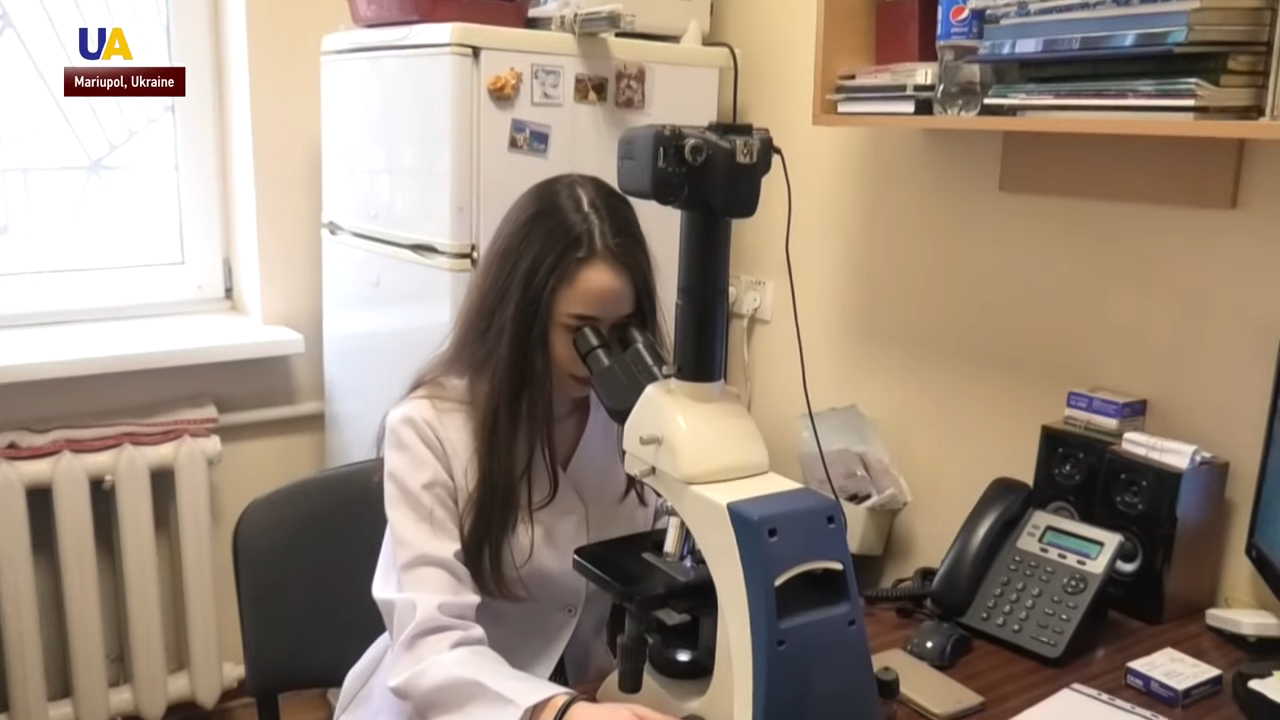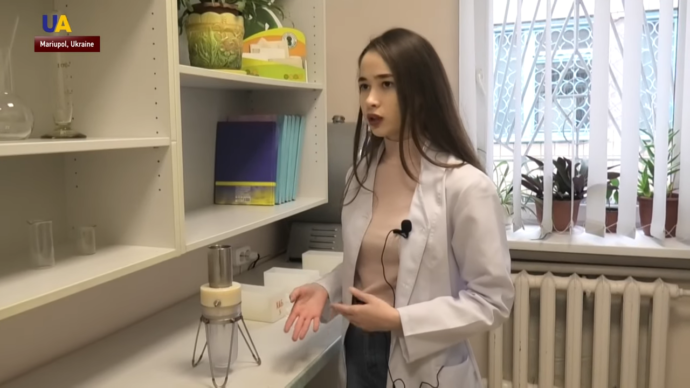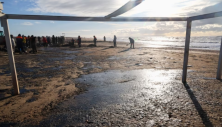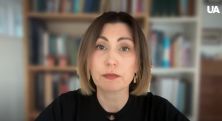A unique method for early cancer detection was invented by a Mariupol schoolgirl. Last year, Olha Kharasakhal’s work was recognized at several prestigious international competitions for young scientists. Now Olha studies at a medical university, where she continues her research and wants to receive a patent for her invention.
“Here we put the disposable filter. Each patient has his own – and then we close it back. Here we put the blood and turn on the pump. Blood filtration is carried out at low capacities,” Olha said as she demostrated how the device works.
It detects whether melanoma, a form of skin cancer, is prone to metastasize in the early stages. She invented a cheap and effective device that has been used at the Mariupol Oncology Center for two years.
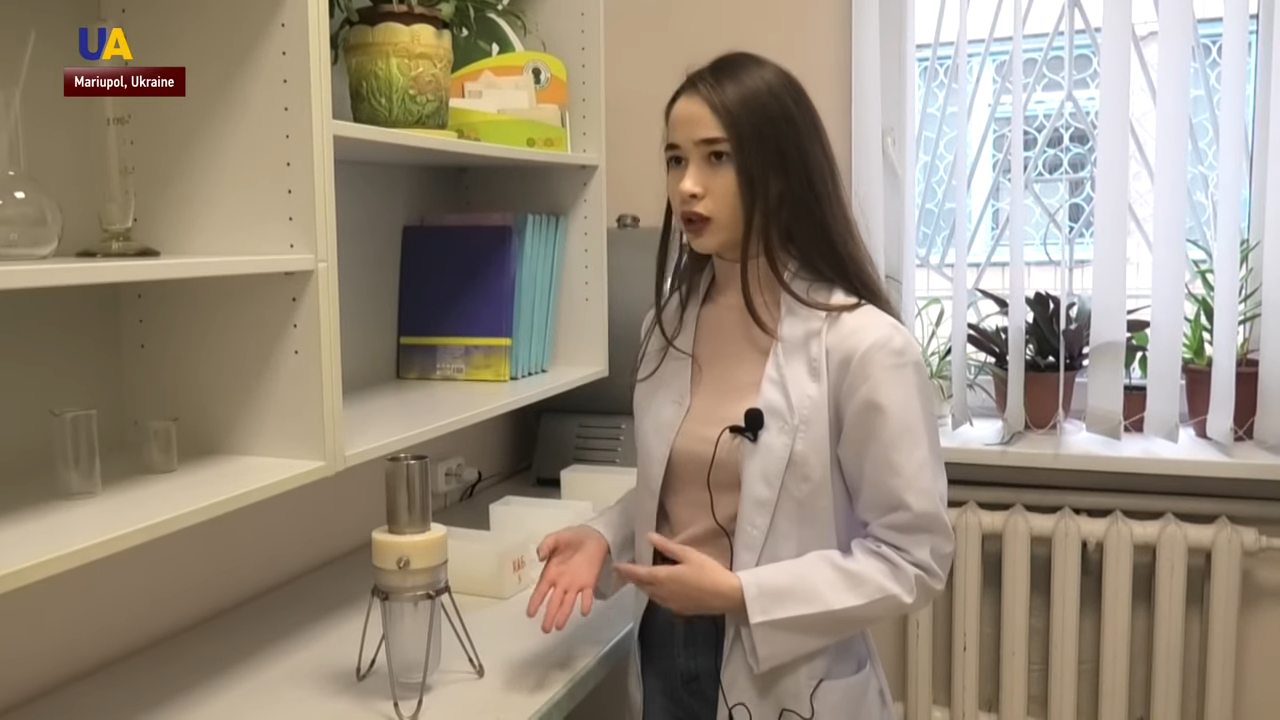
Chief physician at the Mariupol Cancer Center, Serhiy Voloshyn, said, “With hematogenous metastasis, we can detect malignant cells in the blood and give a prognosis for the patient. It will help determine whether there will be a relapse in the disease, or not, and whether the disease will progress.”
At the age of 14, Olha began working as a volunteer in the Mariupol cancer center. The chief physician planned to purchase imported patented equipment for the diagnosis of tumors. However, this medical institution did not get the necessary funding. Then the schoolgirl had the idea to create a compact and fundamentally new early detection device for cancer.
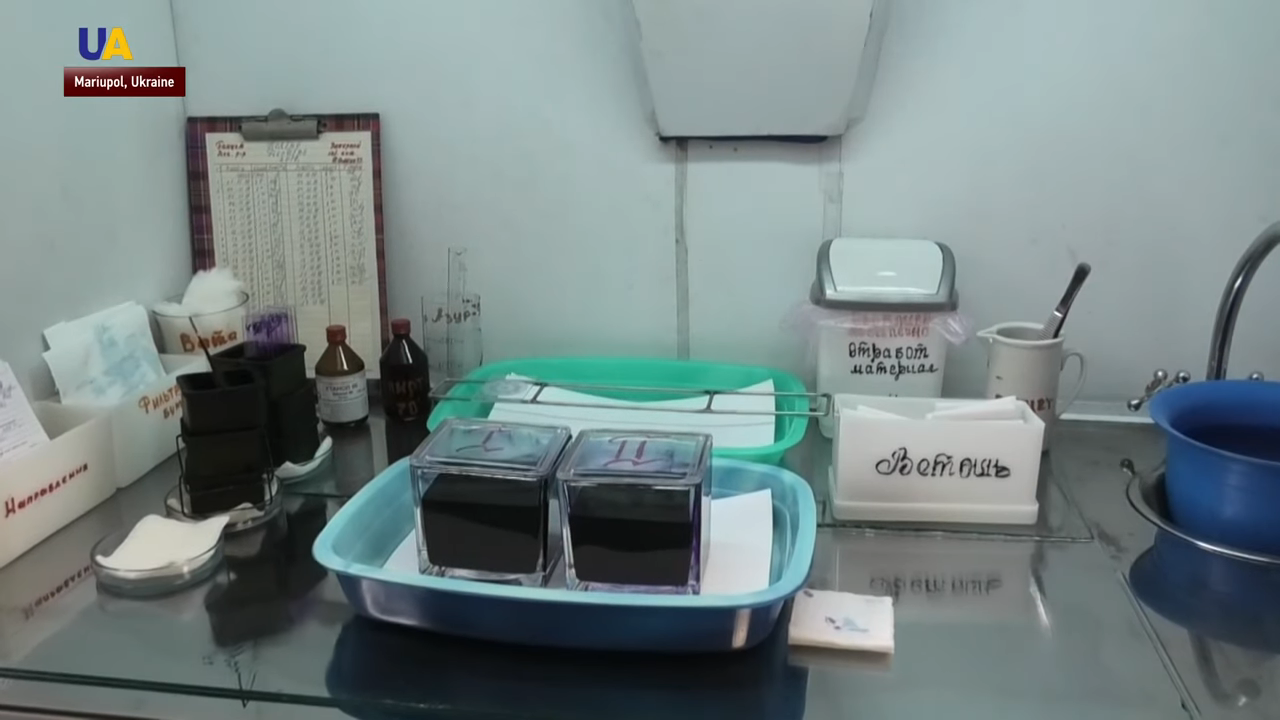
“This is our [inventor’s] device. In others they use centrifugation and a sophisticated immunofluorescence platform. We developed this ourselves, there is nothing like this in the world,” Olha said.

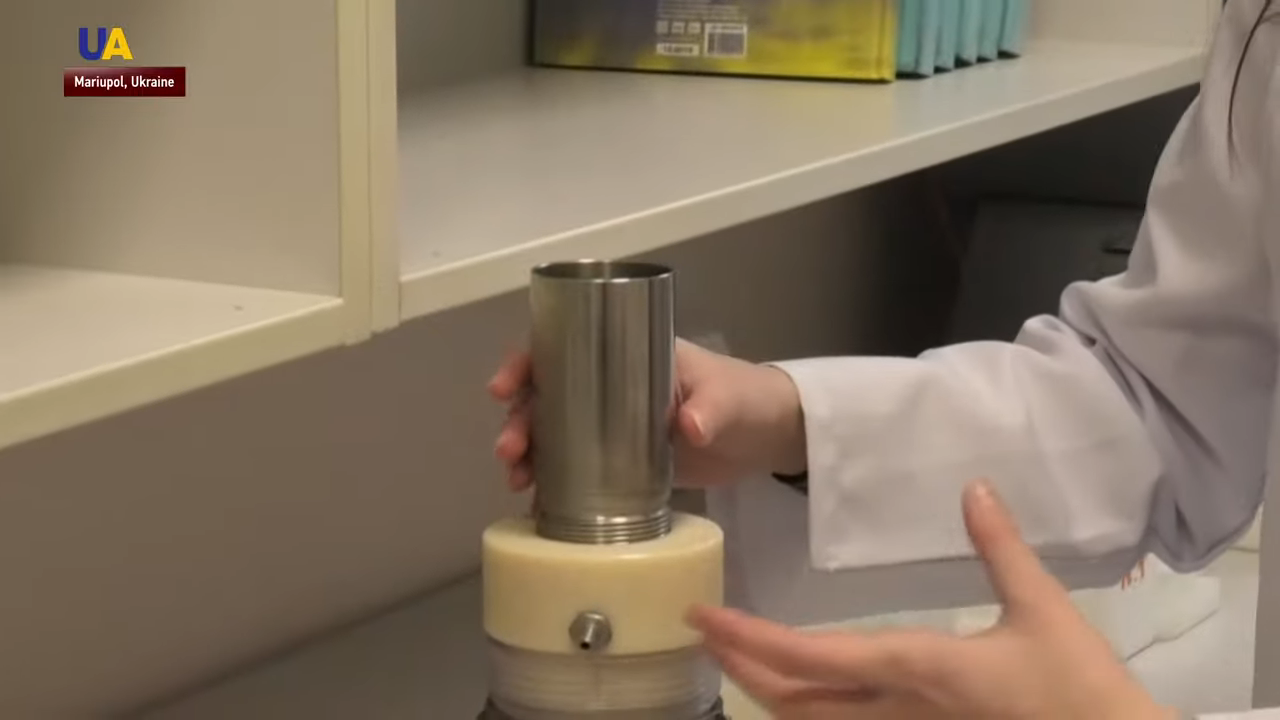
The device by the young Ukrainian inventor is easy to use and much cheaper than imported analogues. One cancer diagnosis will cost the patient almost 100 times less. 90% of melanoma patients throughout the world die from the disease. Olha believes that early detection will save thousands of lives.
“I dream that our development will become widely used in every cytology laboratory at least in Ukraine, and throughout the world. Every patient who needs it, will be able to use it. As a result, the survival rate in patients will increase from 10% to at least 90%.”
In 2019, Olha entered a medical university. She is the winner of four international competitions of scientific projects. She won a gold medal for her invention in October 2019 at the Mostratec competition in Brazil.
